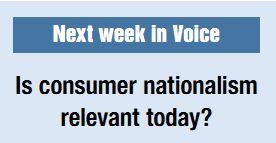[Voice] Can Psy start a new Korean Wave?
With 500 million YouTube hits and a U.S. No. 2 under his belt...Can Psy start a new Korean Wave?
By Korea HeraldPublished : Oct. 22, 2012 - 19:43
It’s a Korean music success story few saw coming. But 500 million hits on YouTube later, Psy, worlds away from K-pop’s typical cutesy affections or unabashed sex appeal, has achieved international exposure previously unseen in Korean pop culture.
While Korean pop, drama and film have enjoyed major success in Asia since the 1990s, “hallyu” has yet to rise above niche status in the U.S. and Europe. Before Psy’s “Gangnam Style,” which peaked at No. 2 on the U.S. billboard Top 100, Wonder Girls had been the only Korean artist to chart Stateside. Their English version of the single “Nobody” reached No. 76 in 2010.
It remains to be seen whether Psy, who has announced that his next single will be sung in English, is destined to be a one-hit wonder or an enduring figure on the international music scene. Nevertheless, there are hopes that Psy, having gained a platform like few other Korean entertainers, can open up new audiences worldwide to the nation’s culture. Culture Minister Choe Kwang-shik last month even named Psy in a speech about how the Korean Wave was boosting interest in the Korean language and culture overseas.
While Korean pop, drama and film have enjoyed major success in Asia since the 1990s, “hallyu” has yet to rise above niche status in the U.S. and Europe. Before Psy’s “Gangnam Style,” which peaked at No. 2 on the U.S. billboard Top 100, Wonder Girls had been the only Korean artist to chart Stateside. Their English version of the single “Nobody” reached No. 76 in 2010.
It remains to be seen whether Psy, who has announced that his next single will be sung in English, is destined to be a one-hit wonder or an enduring figure on the international music scene. Nevertheless, there are hopes that Psy, having gained a platform like few other Korean entertainers, can open up new audiences worldwide to the nation’s culture. Culture Minister Choe Kwang-shik last month even named Psy in a speech about how the Korean Wave was boosting interest in the Korean language and culture overseas.

Roh Jun-seok, Industry Research Team director at the Korea Creative Content Agency, believes that Psy’s success will foster greater interest in Korean popular culture, as hallyu stars have done before him.
“Starting from 2008, Korean dramas and K-pop gained global competitiveness when K-pop idol groups started to enter the Japanese market full-scale and succeeded. Additionally, online gaming, which has been popular since the early 2000s through PC rooms and ‘e-sports,’ became competitive in regions such as China, Japan and the United States,” Roh said.
“Thus, among current Korean cultural contents, dramas, K-pop and games have global competitiveness. We believe Psy’s success will bring positive influence directly or indirectly to other content, as people all over the world will gain interest in Korean culture and other cultural contents since Psy’s B-grade music has become globally popular.”
The rising tide
Roh said the “Gangnam Style” phenomenon especially held lessons on the importance of social media and competency in the language of a target market.
“It is important to use the marketing strategy of using social media such as YouTube and Twitter so that content will naturally spread around the world. Additionally, it leads to tangible profit when they get exposure from main media such as major television networks and newspapers, so language ability such as speaking English is important as well,” said Roh.
Psy’s example might not only lead to greater exposure of Korean pop culture, but also to a greater variety of styles and talent. That’s the view of Kim Eun-mee, the president of Korea Association of International Development and Cooperation and a professor at Ehwa Womans University.
“I think this will lead to a floodgate of ‘new styles’ of K-pop going beyond the more stylized mass popular culture. More diversity of styles would come as a result, and I am sure that there will be others who would try to strike a funny and universal cultural code,” said Kim.
Kim noted that earlier expressions of hallyu were less cosmopolitan and outward-looking than today.
“We can remember from the earlier K-dramas, that the first wave of K-dramas was not really meant for the global market. However, once a drama was successful, it appears that other dramas tried to cater to the global needs in the culture industry and we saw an increase in the number of movies and dramas that had from the start a more global content with shoots in international locations and sometimes with foreign stars.”
Not everyone, however, is convinced that Psy’s moment in the sun will translate into any major uptick in interest in hallyu. Amy He, the editor of the New York-based K-pop site Seoulbeats, pointed to barriers to hallyu ever achieving mainstream success in the West.
“At best, I think Psy’s success will bring short-lived interest to Korea’s other cultural content,” said He. “As much as Psy tries to explain Gangnam and the cultural meaning of his song, his success now mostly hinges independently from the cultural meaning of his product. Most people in the West now treat it as a one-off entity and the way ‘Gangnam Style’ is popular now is reminiscent of past one-hit wonders that achieved enormous popularity in America.”
For He, much of Psy’s popularity does, however, rest on him being different from what has been seen before. In that regard, she said, there is a lot the K-pop industry could learn from him.
Distinctly Korean
“I think the lesson is to not lose the Korean flavor of K-pop,” said He. “Whenever K-pop artists try to come to America, it always becomes a quest to be as American as possible in the musical sensibilities, but the problem with that is that the sound that K-pop aspires to in America is something American audiences find to be ‘been there, done that.’ Americans don’t really need regurgitated versions of their own pop; what Psy brought to the table was something distinctly Korean.”
Considering that boy and girl groups peaked in popularity in the U.S. and elsewhere in the ‘90s, He added, K-pop’s fortunes were likely to be affected by the success of new groups revisiting the genre rather than by Psy.
“Again, the biggest hurdle to hallyu’s success overseas is how much it tries to imitate what’s already put out in America. On top of that, groups are just out of style and if anything happening musically is going to give K-pop groups the push it needs, it’s going to be the rising popularity of acts like One Direction and The Wanted, and not Psy.”
While there is little argument that a sense of freshness has played its part in Psy’s success, there is less agreement about whether he truly came out of nowhere as commonly imagined. Despite having little in common with K-pop flag bearers such as Girls’ Generation and Super Junior, some observers here see Psy’s breakthrough as having been made possible by other Korean artists’ efforts to break new markets.
“I think Psy’s success is actually built upon the earlier K-pop groups,” said Kim. “Although they were not as successful as Psy, K-pop’s continued success worldwide including Wonder Girls in the U.S., and TVXQ in China, BoA in Japan, and Rain all contributed to familiarizing the Korean face and music to the world. These other performers were more stylized, and showed a carefully rehearsed and choreographed music and dance, (but) Psy’s performance is actually a result of years of practice in honing his own ‘style.’”
Kim added that the example of “Gangnam Style” vindicated government and private sector efforts to promote hallyu.
“I disagree that earlier agencies and government were trying too hard ― had it not been for their hard work, Psy may have not struck a chord with the global audience due to his too-much ‘newness.’”
― Sang Youn-joo contributed to this report.
By John Power (john.power@heraldcorp.com)
READERS’ VOICE
Psy and hallyu ...
I don’t think so. The Korean Wave of the early 21st century was more massive and powerful and substantially failed to go global.
― Jay Spi, via Facebook
I don’t think so. Korean culture is so far afield that it’s hard to be acceptable, at least in Western cultures.
― Pamila Jo Florea, Seoul, via Facebook
No. Even though aspects of it, like horror cinema, have a niche I don’t see it happening. Asian culture is very opaque to most Westerners.
― Francine Hibiscus Rossi, Rochester Hills, Michigan, via Facebook
A horse dance, pelvic thrusts and yoga pants are not going to get people in Belgium or Paraguay begging to slip into hanbok or dying for a bottle of baekseju. Psy is popular because the video was funny. That’s the No. 1 rule of the net: do something ridiculous enough, and people will pay attention ― until the next ridiculous thing comes around.
― Aaron Lee Crossen, Ulsan, via Facebook
Police shortage …
A recent government report claimed that Korean police were short staffed to deal with crimes committed by foreigners in the country. ― Ed.
The question might be better phrased as: Are there enough police to handle crimes against foreigners? Too much crime goes undetected, gets shuffled off, and no official report is ever opened. It’s time that police officers are encouraged (given incentives?) to chase criminals, enforce laws, and do more than look like glorified traffic directors.
― Chris Backe, Seoul, via Facebook
The law doesnt exist to protect foreigners here; it exists to protect the local population from foreigners and their perceived threat as ingrained in their consciousness from the national media. ‘Foreigners commit lots of crimes’ is just a self-fulfilling prophecy as far as im concerned.
― Justin Howard, Seoul, via Facebook
This statistic, one officer for 1,102 alien residents, assumes all foreigners are going to commit crime, but the crime rate is not that high among foreigners as cited in your other news articles (under 8 percent), which would mean that after some simple math, in the course of a year one police officer needs to deal with 72 foreign alleged criminals. Really, what a ridiculous thing for a news report to reprint; didn’t anyone think that not all foreigners are going to commit crime before printing this: “Currently, about 996,000 foreigners are living in the country, which means that one police officer is assigned to take care of as many as 904 foreigners, said the report by the National Police Agency (NPA).”
― Chelle Mille, Seoul, via Facebook

-
Articles by Korea Herald


















![[KH Explains] Hyundai's full hybrid edge to pay off amid slow transition to pure EVs](http://res.heraldm.com/phpwas/restmb_idxmake.php?idx=652&simg=/content/image/2024/04/18/20240418050645_0.jpg&u=20240419100350)

![[Today’s K-pop] Zico drops snippet of collaboration with Jennie](http://res.heraldm.com/phpwas/restmb_idxmake.php?idx=642&simg=/content/image/2024/04/18/20240418050702_0.jpg&u=)